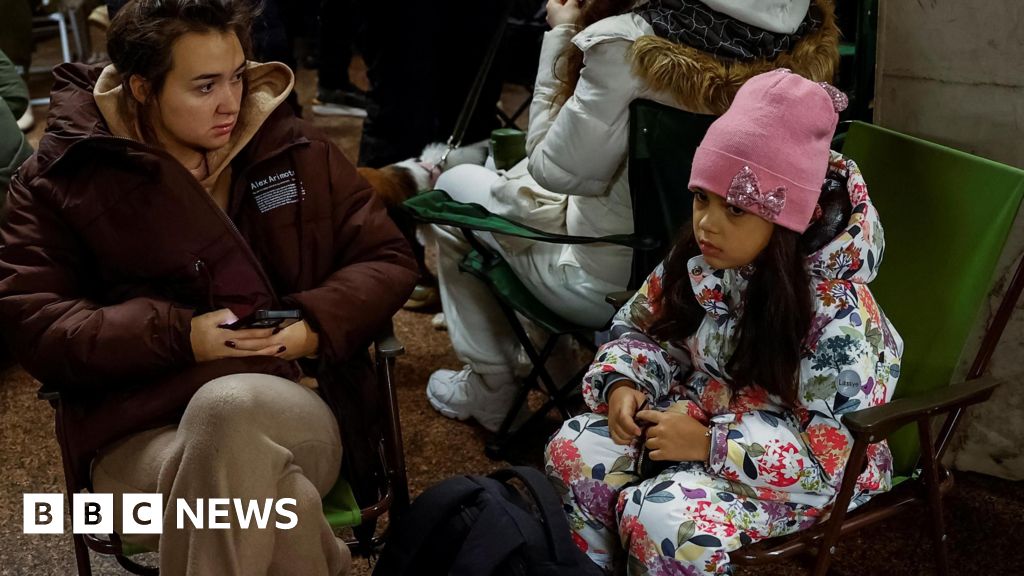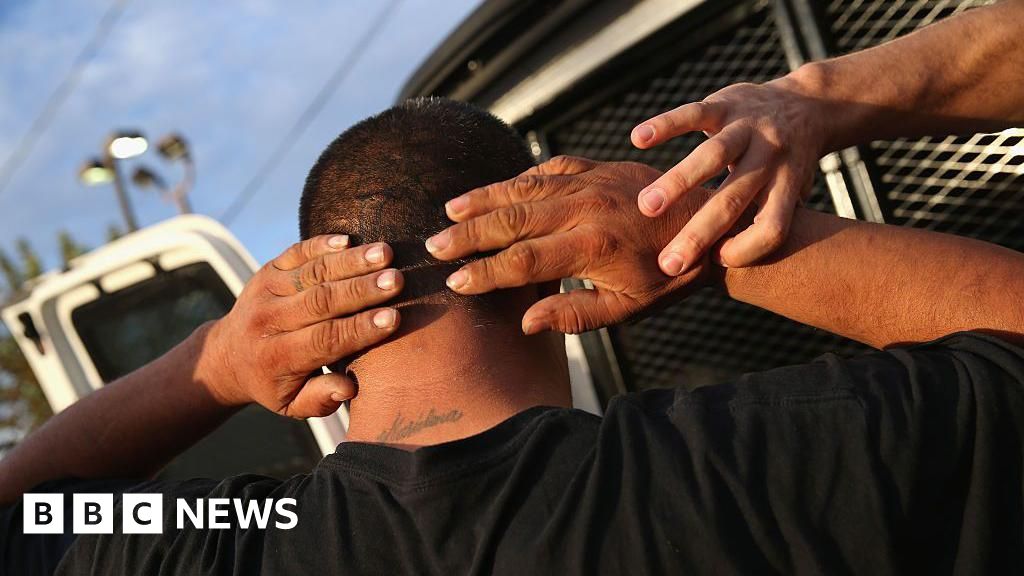ARTICLE AD BOX
By Sarah Rainsford
BBC Eastern Europe correspondent, Dnipro
Image source, Sarah Rainsford
Image caption,Weapons lie beside a big stuffed toy on a family's window ledge
I'm writing this in a bomb shelter several storeys below ground with a crowd of people, four dogs and a pet rabbit.
Hotel staff ran round banging on doors soon after midnight before herding us down multiple flights of stairs at high speed.
It looks like they've overreacted to a rumour about a landing of Russian paratroopers but it's hardly surprising; everyone's on edge here.
Earlier in the evening we visited Hanna Syva and her family in a giant apartment block across the road.
When the Russian invasion of Ukraine began two days ago, she moved the whole family into the living room to sleep behind the sofa.
Her husband brought out his gun. It now lies beside a big stuffed toy on their window ledge.
The mother-of-two seems upbeat, describing all her preparations. But she admits she's putting on a smile not to worry her children.
"They cried yesterday, they're very nervous, so I can't afford to be scared," Hanna says.
Image source, Sarah Rainsford
Image caption,Hanna Syva ordered her two children emergency bracelets, which include their blood group
Both her boys are wearing emergency bracelets she ordered a week ago printed with their names, a mobile number and their blood group.
"That was unbelievable for me when I put their blood group for the paramedics. As a mother, it just freaks me out," she says.
So far, the only explosions near Dnipro came in the earliest hours of this Russian assault; the city has been calm ever since. But Russian forces are battling to the south, north and east of here.
So Hanna is distracting herself with practicalities.
She and her neighbours cleaned up their basement and kitted it out so they can shelter there from any shelling. She has grab-bags standing ready by the front door with a change of clothes, snacks and water.
The basement is too small for everyone, but some residents have already headed further west seeking safety.
A flow of other people from the Donbas is replacing them.
Image source, Sarah Rainsford
Image caption,A rabbit is amongst the pets people have brought into a bomb shelter several storeys below ground
Ukrainian troops have been fighting Russian-backed forces in the eastern Donbas since 2014 but since Thursday Russia's military began fighting openly on their side, trying to break through the frontline.
Locals who've stayed describe things as "lively" but say the Ukrainians are holding firm.
I met Liza in a long queue outside a blood donation centre. The student nurse moved to Dnipro eight years ago, when the conflict first began.
She can't bear the thought of being displaced again: she remembers the struggle to find housing and settle the first time.
But she does want to help Ukraine's soldiers so she's come to donate blood for the wounded.
The queue is about 90 minutes long in the cold and rain.
Image source, Sarah Rainsford
Image caption,People queuing outside a blood donation centre
Vlad, who's 20, says he's come to support the troops because he's worried Russia is on a land grab and he doesn't want Vladimir Putin as his president.
"It's quite shocking for me, I'm thinking of taking weapon to my hands, at least to defend my local districts," he says, a tuft of red hair poking from beneath his hat.
But there's some frustration in the queue, too.
"Sanctions are OK, they will help. But we need more, it's not enough," Hanna insisted. "We're relying on Europe now to stop this."
Another student sought me out specially to say he was "angry" that western sanctions against Russia hadn't some sooner and been tougher.
He felt Ukraine had been abandoned.
So he, like the long queue of others, was doing his bit.
"It's important to help the injured so they know they're not alone. That we're ready to help, and we're doing it."

 2 years ago
26
2 years ago
26








 English (US)
English (US)